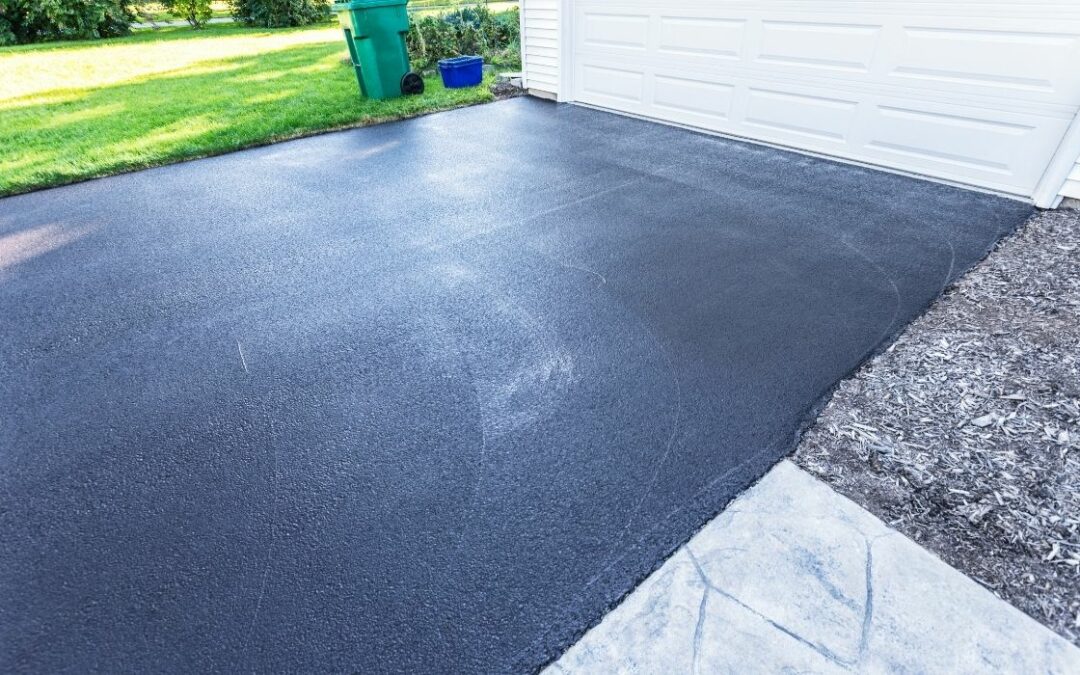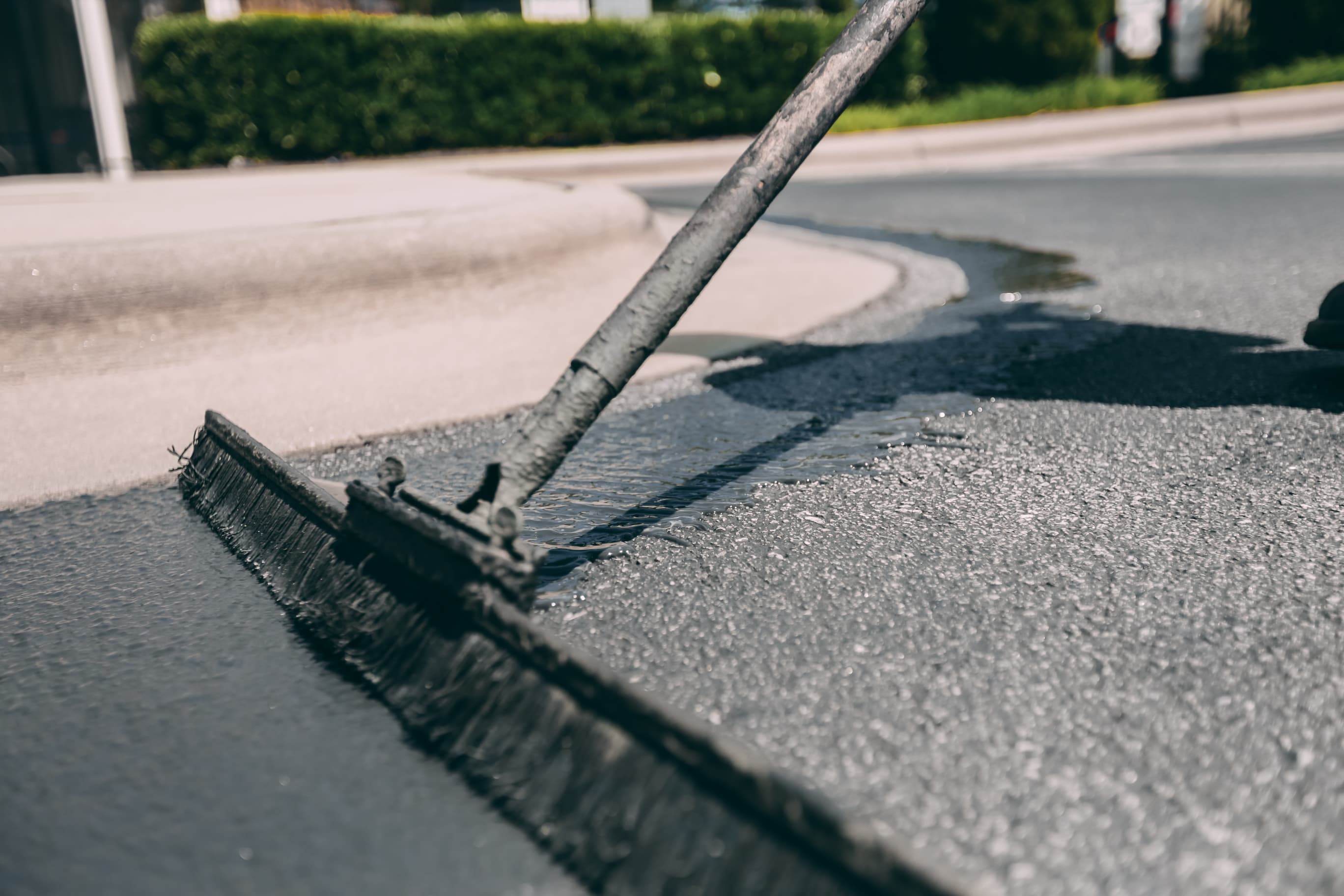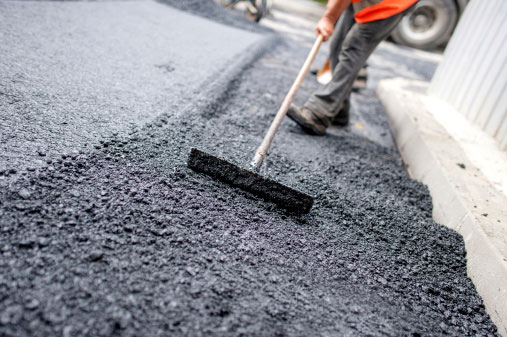Release the Prospective: Regrading and Asphalt Sealing for Industrial Spaces
Release the Prospective: Regrading and Asphalt Sealing for Industrial Spaces
Blog Article
Warm Mix Asphalt: A Lasting Service for Pavement
Hot Mix Asphalt (HMA) has emerged as a leading sustainable selection for pavement services, providing a myriad of innovative technologies and ecological advantages. Its capability to reuse materials and decrease power usage provides a compelling case for its adoption in road construction tasks. The long-lasting performance and longevity of HMA make it a recommended choice for infrastructure advancement. As the demand for environmentally friendly construction techniques grows, discovering the nuances of HMA's sustainability can provide valuable understandings into the future of sidewalk options.
Environmental Benefits of Hot Mix Asphalt

In Addition, Warm Mix Asphalt assists to alleviate urban warm island effects. Its dark color soaks up sunlight, lowering the amount of warmth showed back into the ambience compared to lighter-colored pavements. This can lower ambient temperatures in metropolitan locations, decreasing the need for a/c and ultimately lowering energy usage.
Additionally, Hot Mix Asphalt contributes to improved stormwater administration. Its porous nature permits water to infiltrate the pavement and recharge groundwater materials, lowering drainage and the risk of flooding. These environmental advantages make Warm Mix Asphalt a sustainable choice for paving highways and roadways.
Power Efficiency in HMA Production
Is energy performance an essential variable in the production of Warm Mix Asphalt (HMA)? Power plays a considerable role in the manufacturing of HMA, affecting both cost and ecological sustainability. One essential aspect of power efficiency in HMA manufacturing is the use of warm mix asphalt (WMA) modern technologies.
Additionally, improvements in plant innovations have actually led to even more energy-efficient HMA production procedures. Modern plants are developed with features like recycled asphalt pavement (RAP) handling capabilities, reliable burner systems, and boosted insulation, all adding to power savings. By maximizing energy use in HMA manufacturing, the market can decrease its carbon impact while maintaining high-grade pavement products. Power efficiency is, therefore, a critical consideration in ensuring the sustainability of Hot Mix Asphalt manufacturing.
Recyclability of Hot Mix Asphalt
The recyclability of Hot Mix Asphalt (HMA) is a crucial aspect of its sustainability and long-lasting ecological influence. HMA is just one of one of the most recycled materials in the United States, with over 100 million lots of reclaimed asphalt pavement (RAP) being reused every year in new pavement building. Recycling HMA uses numerous ecological benefits, such as decreasing the requirement for virgin products, reducing power see this page consumption during production, and decreasing the amount of waste sent to garbage dumps.
The process of recycling HMA entails grating the existing pavement, squashing it into smaller pieces, and blending it with brand-new accumulation and asphalt binder to create a recycled mix. This recycled mix can often carry out as well as or also far better than standard HMA, while needing fewer basic materials and generating lower greenhouse gas emissions. By including RAP into new sidewalk tasks, roadway agencies can conserve natural sources, reduce costs, and reduce the environmental footprint of roadway building and upkeep activities. On the whole, the recyclability of HMA plays a considerable role in advertising sustainable methods within the pavement market.

Long-Term Performance of HMA
Asphalt sidewalks demonstrate longevity and durability over an extensive period, showing the long-term performance of Warm Mix Asphalt (HMA) The durability of HMA can be associated to its ability to hold up against hefty website traffic loads, rough climate problems, and the results of aging. Researches have shown that properly designed and properly created HMA pavements can last for two decades or even more with regular maintenance. The trick to making best use of the long-lasting efficiency of HMA hinges on making use of premium materials, complying with finest methods in construction, and executing effective maintenance methods. Correct water drainage, regular inspections, and timely repair services are essential for maintaining the architectural stability of HMA sidewalks gradually. Furthermore, improvements in HMA modern technology, such as making use of polymer-modified binders and cozy mix asphalt, have even more improved the toughness and durability of HMA pavements. By focusing on high quality building and upkeep techniques, HMA remains to prove itself as a economical and lasting remedy for durable pavement infrastructure.

HMA: Durability and Sustainability
Demonstrating both resilience and sustainability, Bonuses Hot Mix Asphalt (HMA) has actually come to be a foundation in the building and construction of resilient pavement facilities - hot mix asphalt. HMA's resilience originates from its capability to hold up against heavy tons, harsh weather, and high web traffic volumes, making it a reputable choice for streets, freeways, and airport runways. The composition of HMA, which commonly consists of accumulations, binder, and filler, plays a crucial function in improving its long life and resistance to tear and put on
Furthermore, HMA's sustainability hinges on its recyclability and energy-efficient production process. The capability to reuse recovered asphalt sidewalk (RAP) in brand-new HMA combinations decreases the demand for virgin materials and decreases the environmental effect of pavement building and upkeep. In addition, the Click This Link power performance of generating HMA depends on its lower mixing temperatures compared to other pavement products, bring about minimized power consumption and greenhouse gas emissions.
Verdict
In conclusion, warm mix asphalt (HMA) offers a sustainable service for sidewalk with its ecologically pleasant characteristics. HMA's recyclability, power efficiency in production, and long-lasting longevity make it an environment-friendly choice for road building.
HMA is one of the most recycled materials in the United States, with over 100 million lots of reclaimed asphalt pavement (RAP) being reused every year in brand-new sidewalk building.The procedure of reusing HMA entails crushing the existing pavement, squashing it right into smaller sized items, and mixing it with brand-new accumulation and asphalt binder to produce a recycled mix.Asphalt sidewalks demonstrate resilience and resilience over an extended duration, mirroring the long-term efficiency of Warm Mix Asphalt (HMA) Additionally, innovations in HMA innovation, such as the usage of polymer-modified binders and warm mix asphalt, have better enhanced the sturdiness and durability of HMA pavements. The capacity to recycle recovered asphalt sidewalk (RAP) in brand-new HMA mixes lowers the demand for virgin products and minimizes the ecological effect of pavement building and maintenance.
Report this page